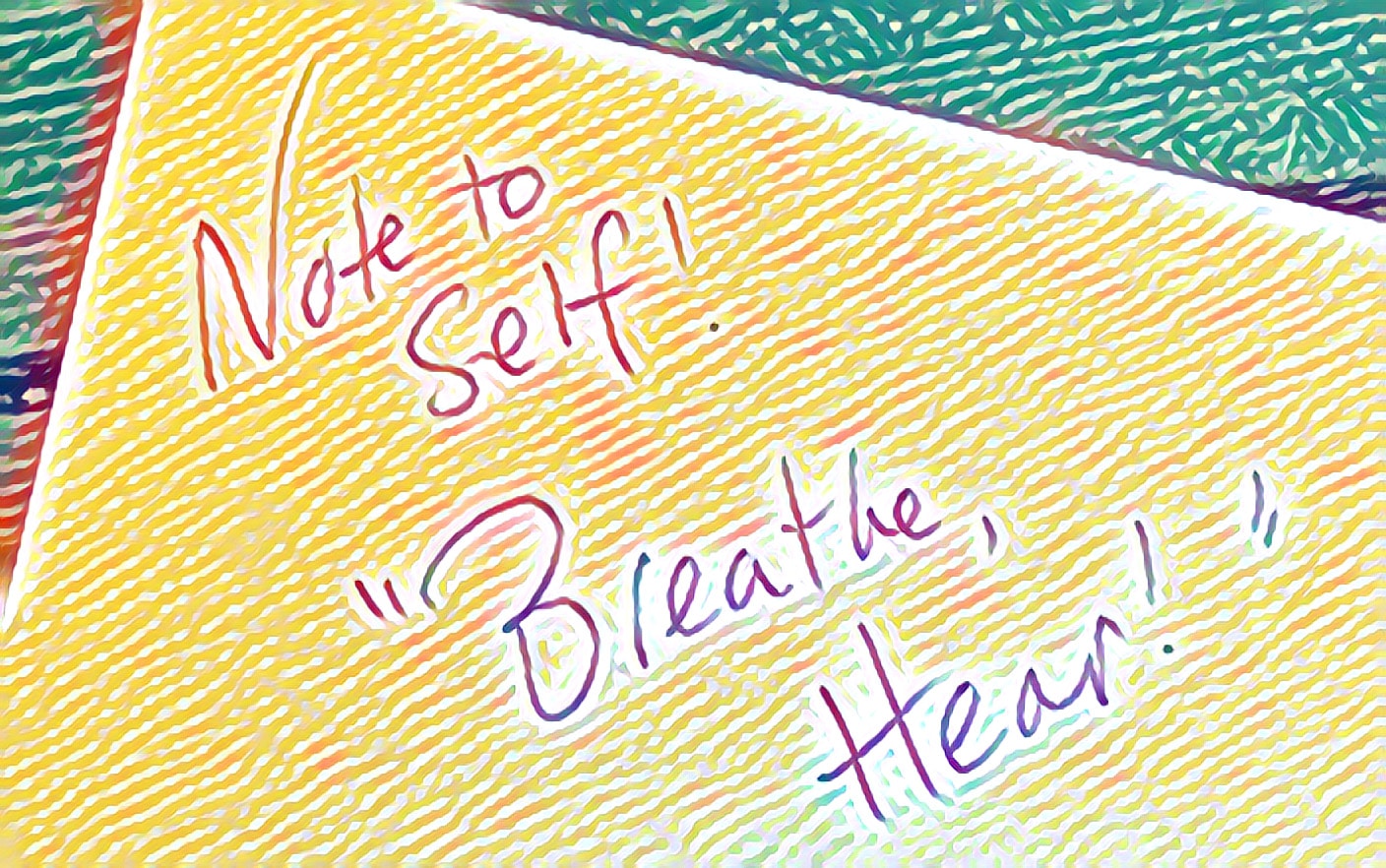Have you been thinking about your self-care recently? You know the term – it means, well, it’s when you…OK, so what does it mean?
Formal description: The practice of taking action to preserve or improve protect one’s own health and wellbeing, particularly during periods of stress.
Casual: Anything that you intentionally do to take care of your mental and physical wellness.
I don’t know about you, but these days, I need a lot of self-care. Besides ongoing hearing issues, I’m now a senior and all that entails. Then there’s the stress of the pandemic and recovering from covid. But it’s the hearing loss and head noise that demand much of my attention and energy.
Dealing with any degree of hearing loss can be challenging. You have options – hearing aids, assistive technology, and other non-technical strategies – but none of these offer a cure. They help you hear and communicate but you must still work hard at understanding what’s going on. And then there’s tinnitus; if you have “T” and/or hyperacusis, you get stress! You likely spend a huge amount of time on the internet looking for cures – and there are many supplements or head-thumping exercises that say “Use me! This will return silence to your head!” After a significant cash outlay, you most likely find that they don’t work as promised.
It’s time for a close look at self-care in your life.
The goal of self-care is to develop life-equilibrium to deal with threats to your health. To pull your spirit back from being on your knees with fear and anxiety to an upright position. Self-care aims for mental calm and physical wellness.
Like you, I am on a journey with hearing-related issues. Some time ago, I realized that hearing assistive technology, while a lifesaving and game-changing super strategy, needs support to help me operate as best as possible. I learned the value of non-technical strategies and accepting the help of others. But recently, I have also discovered the powerful of self-care in reducing the stress of living with significant communication challenges and incessant head noise.
I pursue calmness, not always an easy task for someone like me who traditionally operates on nervous energy. It’s a process, and an important one. It’s a fact that when you are calm, you’re better able to deal with life’s yucky stuff. You can see more clearly though the haze of emotion and stress and you can make better decisions about how to go forward. And the key word there is decisions – the ones that you make. Not what happens to you, or decisions imposed by other people, but the choices you have and follow up on, intentionally.
Cheryl Bundy, a hospital chaplain, says in an article that self-care is not selfish – it’s important to take care of our ‘whole person’ to deal with what’s going on in our life. Ms. Bundy describes seven important elements of self-care and I encourage you to read her article.
This is what I try to do, every day, although some days zip by without getting in, for example, at least a few minutes of mindfulness or a good workout.
- I acknowledge my needs and use practical strategies such as using technology to hear better and block out some head noise.
- I try to keep my mind engaged on things that interest me – as well as the necessary, but more mundane tasks.
- I aim to get enough sleep and rest because the body needs it to function at its best.
- I eat good food – the nutritious kind, balanced with an occasional dollop of the stuff that’s not good for you, but makes you happy while you’re eating it.
- I exercise – aiming for at least an hour a day plus some yoga time. Some days I even hit that target.
- I reduce my noise intake. My reactive tinnitus doesn’t like a lot of noise and less noise means more calm.
- I meditate and deep-breathe. This has been a real game-changer for me. My goal is 40 minutes a day, but the reality so far is hovering around the 20-minute mark. It pays off in a quieter head and gives hope that there are things that help.
- I practice gratitude and kindness. I can be a real Negative Nellie, so I’m working to shift my attitudes. Meditation helps, as well as being around positive people.
- And sometimes I throw hissy fits, inner and outer. Because that’s me. Then I move on.
All these strategies interact and support each other and merge into self-care. This approach has made an amazing difference in my life, and it may do the same for you.








Wonderful as per your usual pep talks. Yes, seems like we can not always remember to do these things but it does help when we remember to take care of yourselves first.
Yes, it is hard at times to always be on the lookout for telltale signs that we have dropped the ball, but easy to pick it up again and carry on, as most of us HOH people know. And yes, a good, positive attitude goes a long ways in helping keep the calm going. Thanks Gael and hugs.
I just found these remarks. Especially empathized with the moments before accessing hearing technology and self-care.
I’ve heard you speak many times, Gael, and enjoyed each time. HLAA Rochester is my home chapter. I guess we can only zoom you now………As a bilateral ci user I recall your story about saying “no!” to a beau and not understanding his remark. Good thing you did understand, “Let’s get married.” from your husband. This is the first time I discovered that you’ve gotten implanted. Keep the faith.